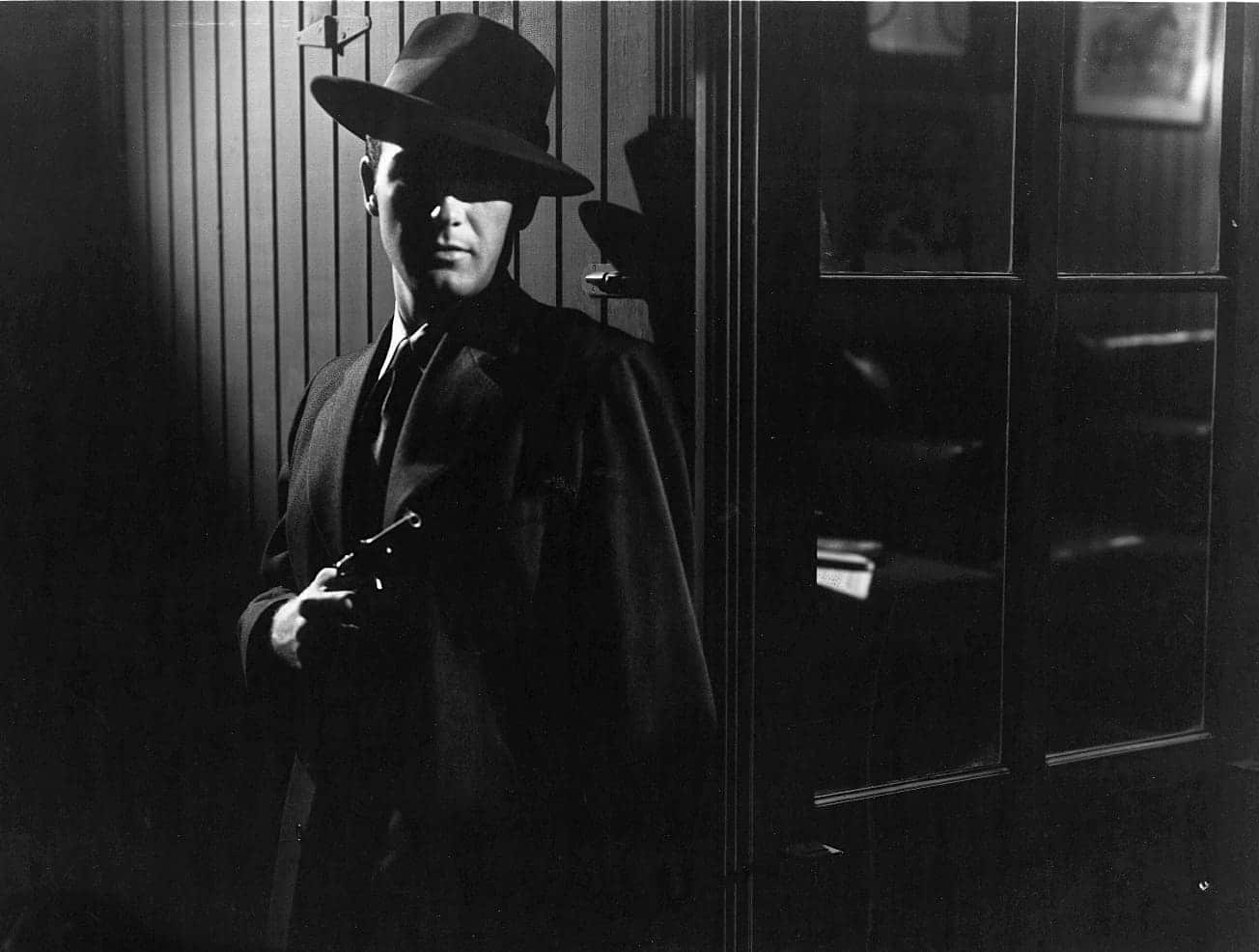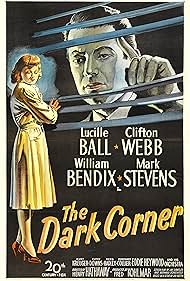The Dark Corner didn’t do too well when it debuted in 1946. There were too many other noirs around and it struggled to stand out from the pack. Now, though, it looks a lot better – its dark wit, snappy one liners and good cast help, plus the direction of Henry Hathaway, who knows how to be economical and inject pace.
Hathaway blamed Mark Stevens for the film’s failure, and though Stevens is playing a private investigator as a second-order simulacrum – a version of a version – he gets the lines out well enough, and it is the lines that this film is about… when it’s not about plot.
Stevens plays Bradford Galt, a New York private eye with a skeleton rattling in his closet. This makes him a particularly easy target for whoever wants to kill him, or frame him for murder – get him out of the way at any rate.
Lucille Ball plays his smart and punchy secretary who becomes Galt’s increasingly indispensable right-hand-woman and potential love interest after he’s nearly run over one night. Who wants him dead, and why? There is a cabal of potential killers. William Bendix as Foss, a heavy on Galt’s tail. Kurt Kreuger as Jardine, Galt’s former partner, a womaniser and blackmailer. Clifton Webb as Cathcart, an art collector with a much younger wife, Mari (Cathy Downs). Also popping up every now and then in a largely unnecessary role is Reed Hadley as the baritone cop Lieutenant Frank Reeves, who’s there largely to keep the audience up to speed.
The writing is by a whole lot of people, and Ball gets the bulk of the funny lines, which suits her of course, though at this point in her career she wasn’t known for funny. Hathaway struggled with her and they rowed about her performance. You can see what the director was pushing against – there are flashes of brilliance but also flashes of total deadness in Ball’s playing of Kathleen.
Everyone else fares a lot better – Bendix is well used to playing punchy heavies. Kreuger hailed from Germany, and in 1946 that automatically said baddie. Webb is the master of playing a certain type – plush, slippered, rich, effete – and while he can’t act, he can play this character. Downs is also rather good at projecting what Cathcart wants from her – sex. Look at her tits-first entrance and you can understand why Jardine wants a slice of that too.

The plot is tightly interwoven – the heavy on Galt’s tail, Jardine pulling the strings and also tupping the vengeful art collector’s wife, who wants to flee the coup, while Galt and his entirely blameless secretary wonder what they’re caught up in. Cross and double cross.
The dialogue is terse and epithets drip from Webb’s mouth in sub-Wildean fashion – “How I detest the dawn. The grass always looks like it’s been out all night.” While Stevens gets the more side-of-the-mouth sub-Chandler stuff – “I could be framed easier than Whistler’s mother.” Hathaway makes an effort to stop it feeling like run-of-the-mill noir, even though it’s set mostly at night, by injecting little humanising touches – a kid who plays a penny whistle, the look that passes between the milkman and Kathleen when he realises she’s got a man in her room, a maid having trouble with a vacuum cleaner.
Hathaway was on a run of noirs at this point in his career, having made his name with westerns. Thanks to lighting by the great Joseph MacDonald (Panic in the Street, Pickup on South Street) it looks the noirish deal. And feels like it too. Stevens may not be great but he exudes existential gloom the way the best movie gumshoes do. You will him on even as you wonder whether he isn’t partly the architect of his own misfortune.
The Dark Corner – Watch it/buy it at Amazon
I am an Amazon affiliate
© Steve Morrissey 2024

